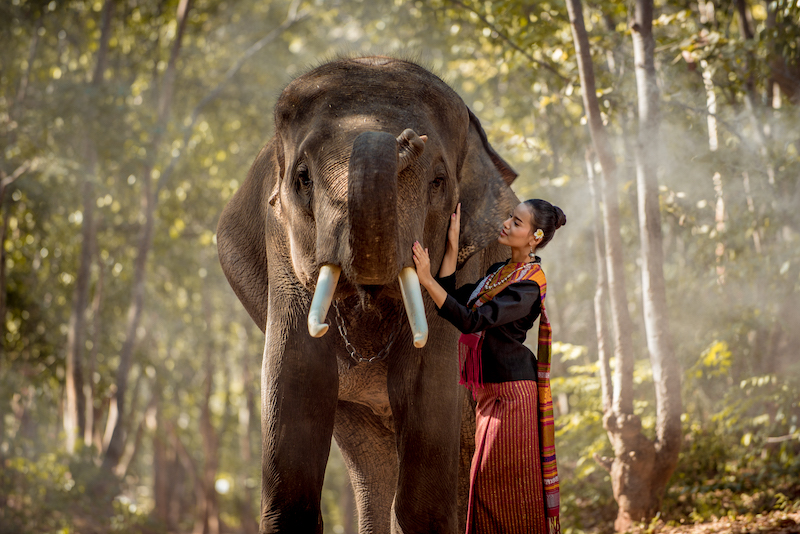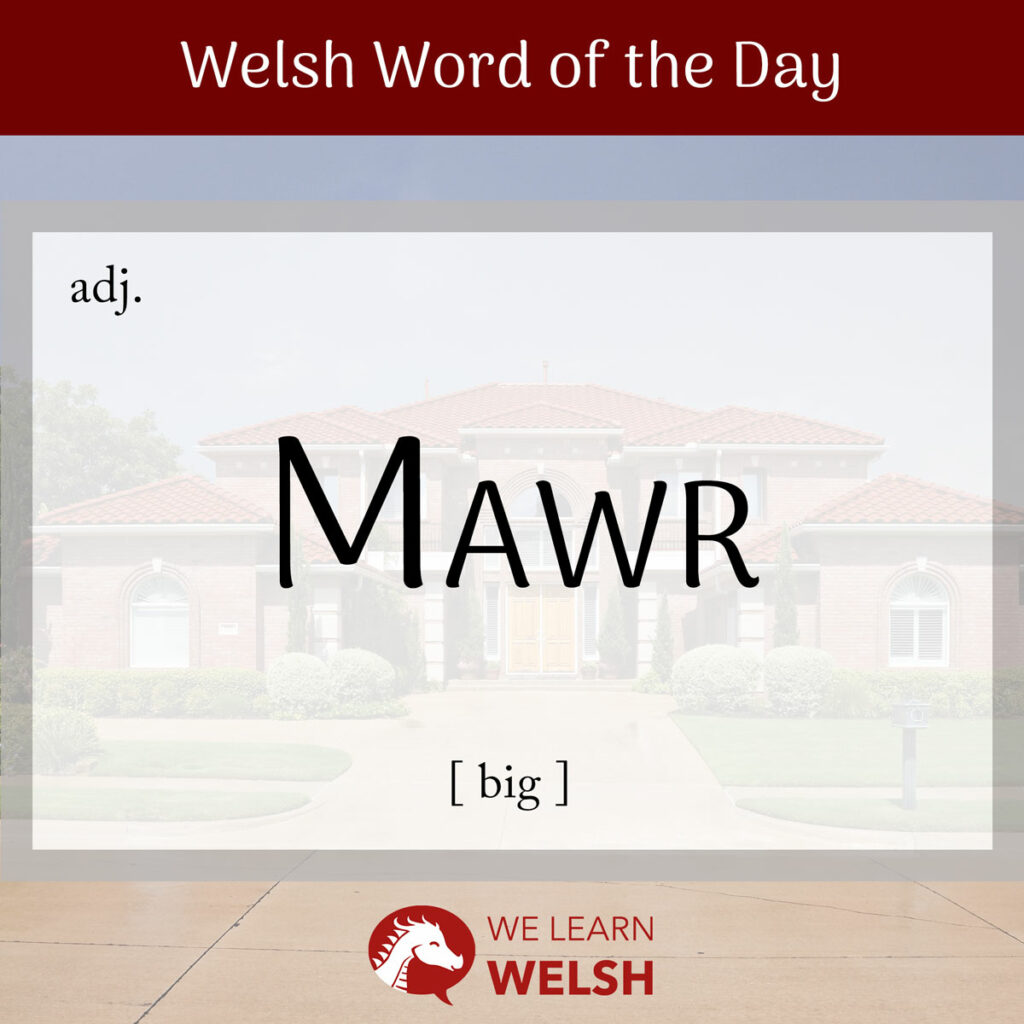In any language, the most important words are often the most basic. One key example of this is the word big – short and simple, but used in almost every conversation you’ll ever have. The Welsh word for big is mawr.
mawr
big
It’s sometimes pronounced like this in South Wales, colloquially:
But this is by no means universal amongst South Walians.
The etymology of this word is very simple. It’s existed in the Welsh language for a very long time, originally written as maur. Originally, it would have come from a proto-Celtic word similar to *maros, also meaning big, derived from the Indo-European root *meh (to measure).
This means that there are words related to mawr all over Eurasia, from matas (size) in Lithuanian to matra (only) in Hindi.
The opposite is bach (small) or mân (small / fine).
Mawr only responds to the soft mutation:
Soft mutation
fawr
Nasal mutation
N/A
Aspirate mutation
N/A
It does this in a variety of grammatical contexts, but one of the most frequently occurring is after a feminine noun. For example, a big cat is cath fawr, as opposed to a big dog which is just ci mawr.
Some adjectives in Welsh also change when they’re describing a plural noun. Technically and archaically, mawr could become mawrion (e.g. cathod mawrion), but this is rare outside of literature. You would sound quite old-fashioned if you used mawrion in a casual conversation.
Another way in which the word changes is when you’re comparing different degrees of maint (size). You’re very likely to have already come across the words mwy (bigger or more) and mwyaf (biggest or most). These are also used to compare other adjectives – think of the phrases mwy prydferth (more beautiful) or y mwyaf deallus (the most intelligent).
Roedd y bachgen bach a’i chwaer fawr yn rhannu eu teganau.
The little boy and his big sister were sharing their toys.
Other comparative phrases include:
- y mwyaf o’r ddau = the bigger of the two
- mynd yn fwy / dod yn fwy = to get bigger
- mwyfwy = bigger and bigger
- gorau po fwyaf = the bigger the better
- cymaint â = as much as
- cymaint â hyn = this much
- dwywaith cymaint = twice as much
Speaking of much, mawr is often used to translate this word. The Welsh say diolch yn fawr (literally thank you bigly) instead of thank you very much.
Let’s look at some you might not have heard of, but that follow a similar pattern. One example is the phrase er mawr syndod i mi (much to my astonishment, literally despite big surprise to me). Another would be the common expression dim fawr o werth (not worth much / not very useful, literally not big of value).
Since there isn’t one single word which directly translates as much, its uses in English need to employ various words in Welsh. Mawr is just one of these!
Mae gan fy nghi glustiau mawr llipa.
My dog has big floppy ears.
And this really reflects a larger phenomenon, which is that mawr is used very broadly in Welsh, in ways that it wouldn’t be in English. Aside from diolch yn fawr, the other example which comes up in every single conversation is hwyl fawr (goodbye). Hwyl is a complicated word which originally meant a sail.
Today, hwyl still carries its original sense but has taken on a more abstract meaning as well. It can refer to simple fun, or something a little deeper – more like good spirits or a general sense of well-being. When you say hwyl fawr to a friend as you part ways, you’re really wishing them lots of good times and positive vibes until you meet again.
Beth yw’r anifail mwyaf yn y byd? Morfil glas.
What’s the biggest animal in the world? A blue whale.
Something else important to consider is that there’s no separate word for large in Welsh (although there is enfawr meaning very big or huge). The translation for large, great, big is just mawr – except in some specific cases where the English usage is idiomatic, so doesn’t translate naturally or directly into Welsh anyway.
So, The Great War, as in The First World War, is simply Y Rhyfel Fawr.
Expressions like great God, great Scot, or great heavens also use mawr in Welsh. For example, brenin mawr (the big king), nefoedd fawr (big heavens) and Duw mawr (big God) are all common exclamations, especially among older people.
A good example for large would be the large intestine, which is y coluddyn mawr. Other body parts that happen to be mawr (big), while we’re on the subject, are the gwythïen fawr (vena cava) and rhedweli fawr (aorta).
One more usage you might not expect is in the phrase stryd fawr. This literally means big street, but it’s the natural way to say high street in Welsh.
Dechreuodd y bydysawd gyda’r Glec Fawr.
The universe began with the Big Bang.
Before we finish, let’s look at some proverbs and idiomatic sayings in Welsh that use the word mawr. Slip one into your next conversation, it’ll feel great!
- codi’r cythraul mawr = making lots of noise (literally raising the big devil)
- mynd yn llanc fawr / mynd yn llances fawr = getting too big for one’s boots (literally becoming a big young man / becoming a big young lady)
- gwneud bwgan mawr o bopeth = making a mountain out of a molehill (literally making a big monster out of everything)
- y byd mawr / y ddaear fawr = the whole wide world (literally the big world / the big earth)
- tywydd mawr = a very bad storm (literally big weather)
- mae gan foch bach glustiau mawr = children hear everything (literally little pigs have big ears!)
I hope you learnt an expression or two that you’ll be excited to use the next time you speak Welsh. Diolch yn fawr for reading and hwyl fawr for now!


